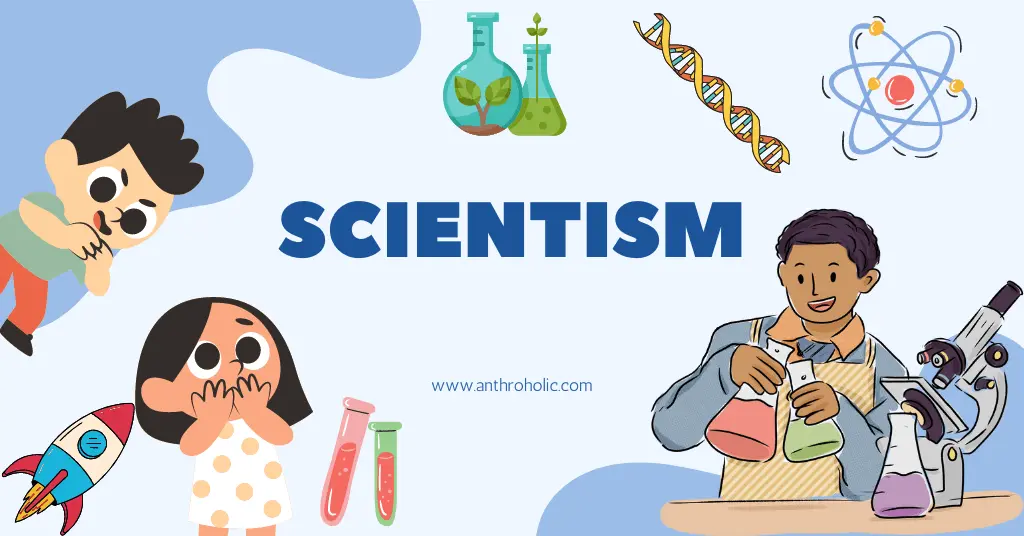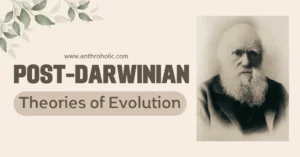AI Answer Evaluation Platform Live Now. Try Free Answer Evaluation Now
Scientism
Scientism is a term that stirs up debate in philosophical, scientific, and general audiences alike. As a belief system, it asserts that science is the exclusive or superior way of understanding and interpreting the world. While scientism has its advocates, it also invites strong criticism. In this article, we aim to explore the concept, its history, its pros and cons, and its influence in today’s society.

Defining Scientism
Scientism is the idea that any philosophical or other inquiry can only be properly conducted using natural science methods or by using the categories and objects that are accepted by natural science. In essence, it is an overconfidence in the efficacy of scientific knowledge and methods. It’s important to make a distinction between using the scientific method to understand things and scientism’s claim that this is the only method that works.
Hard Scientism vs. Soft Scientism
There are two types of scientism: hard and soft. Hard scientism asserts that something is true and valuable only if it is scientifically provable, rejecting other forms of knowledge as invalid. Soft scientism, on the other hand, values other forms of knowledge but considers scientific knowledge superior.
The History of Scientism
Historically, the Enlightenment era was a significant period for the development of scientism. It was a time when great faith was placed in human reason’s ability to unlock the mysteries of the universe.
The Enlightenment and Scientism
During the Enlightenment, thinkers like Francis Bacon advocated for a method of inquiry that relied on empirical evidence, which laid the foundation for modern science. As scientific discoveries began to challenge traditional religious and philosophical views, some people began to argue that science was the only reliable source of knowledge.
The Positivism Movement
The positivism movement in the 19th century, led by thinkers like Auguste Comte, was also influential in shaping scientism. Positivism argued that knowledge should be derived from sensory experience, interpreted through reason and logic, within the framework of the scientific method.
The Pros and Cons of Scientism
While science is a robust methodology for understanding the world, the idea that it is the only means of obtaining knowledge can be problematic.
- Advantages of Scientism
- Predictability: Scientism promotes predictability by encouraging reliance on data, facts, and evidence.
- Empiricism: It emphasizes empirical evidence, which is often more reliable and less prone to bias than subjective experiences or anecdotal evidence.
- Progress: The reliance on science has led to technological and medical advancements, improving human quality of life.
- Disadvantages of Scientism
- Reductionism: Scientism tends to reduce complex phenomena to simpler components, often missing the holistic perspective.
- Dismissal of Other Knowledge Forms: It devalues other forms of understanding, such as philosophy, literature, and the arts, which can provide unique insights into human experiences.
- Ethical Considerations: Science can explain how things are but not how they ought to be. Scientism may neglect ethical, moral, or societal considerations in its pursuit of knowledge.
Scientism in Contemporary Society
Scientism’s influence is evident in many aspects of contemporary society, from education to public policy and technology.
- Influence on Education and Public Policy
Scientism impacts how we perceive and value different academic disciplines. Science, technology, engineering, and mathematics (STEM) fields often receive more attention and funding than humanities and social sciences.
- Role in Technological Advancements
The faith in scientific knowledge and techniques has spurred remarkable technological advancements. However, it also raises questions about technological solutions to human problems, without considering the ethical implications.
Critique of Scientism
Several critiques question scientism’s validity, offering alternative perspectives on knowledge and understanding.
- The Self-Defeating Argument
One primary critique of scientism is that it’s self-defeating. The claim that “only scientific claims are valid” is not itself a scientific claim, but a philosophical one.
- The Limits of Science
Science is a powerful tool, but it has its limits. Some aspects of human experience, such as consciousness, morality, and aesthetics, cannot be fully understood or evaluated through empirical evidence alone.
Conclusion
Scientism, with its dedication to empirical evidence and technological progress, offers a lens to understand our world. However, it’s important to recognize that it’s just one lens. Embracing a diverse range of perspectives can enrich our understanding and help us navigate the complexities of life. As we continue to progress scientifically, maintaining this balance becomes even more essential.



